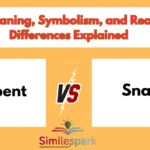Language can be tricky. One tiny word can flip meaning completely. That’s exactly what happens with “proud of you” and “proud for you.” You’ve probably heard both—but which one’s right?
In this in-depth guide, you’ll learn not just the grammar rules but also the emotional depth and real-life context behind these two phrases.
You’ll discover when to use each, why one sounds natural while the other feels off, and how to express pride like a fluent English speaker.
Understanding Why “Proud for You” vs “Proud of You” Matters
English prepositions—of, for, on, about—look small but hold big meaning. The wrong preposition can make a phrase sound unnatural, robotic, or even confusing.
Let’s look at this example:
✅ “I’m proud of you for finishing the marathon.”
❌ “I’m proud for you for finishing the marathon.”
Both sentences seem similar, but only one sounds right to native speakers. Why? It’s all about emotional direction. “Proud of you” expresses admiration toward someone. “Proud for you” expresses happiness on someone’s behalf.
You’re about to see how this subtle shift completely changes tone and meaning.
What “Proud of You” Really Means
“Proud of you” is the standard, emotionally powerful way to express admiration or appreciation. It’s a phrase that connects the speaker’s emotion directly to another person’s action, quality, or character.
When you say “I’m proud of you,” you’re saying:
“Your achievement or character makes me feel proud.”
Common Situations for “Proud of You”
- When someone achieves something big:
“I’m proud of you for getting that promotion.” - When they overcome hardship:
“I’m proud of you for staying strong.” - When they do the right thing:
“I’m proud of you for telling the truth.”
Emotional Meaning
This phrase reflects shared emotion—your pride comes from their success. It shows connection, care, and emotional involvement.
In relationships—parental, romantic, or friendly—it deepens bonds. Saying “I’m proud of you” shows you see someone’s effort and value. It’s one of the most affirming phrases in English.
What “Proud for You” Means (and Why It Sounds Awkward)
Now let’s flip it.
“Proud for you” exists, but it’s rare and situational. It usually means you’re happy for someone’s success rather than personally admiring them.
“I’m proud for you” = “I’m happy for your accomplishment.”
However, because “happy for you” already fits this meaning better, “proud for you” feels clunky or unnatural in most conversations.
When “Proud for You” Might Work
It’s acceptable only in poetic or deeply formal expressions, such as:
- “I’m proud for you, seeing how far you’ve come.”
- “We’re proud for you and your family today.”
Even then, native speakers often replace it with:
“I’m happy for you.”
“I’m thrilled for you.”
“You must be so proud!”
So while “proud for you” isn’t grammatically wrong, it doesn’t sound natural in everyday English.
The Grammar Behind “Proud of” vs “Proud for”
Let’s go deeper into why this difference exists.
The Role of Prepositions
Prepositions like of and for tell us how emotions connect.
| Preposition | Function | Example | Meaning |
|---|---|---|---|
| of | Shows relationship or source | “I’m proud of you.” | My pride comes from you. |
| for | Shows benefit or purpose | “I’m proud for you.” | I’m happy on your behalf. |
Linguistic Explanation
The adjective “proud” naturally pairs with “of”—a collocation deeply embedded in English use. “Proud for” doesn’t follow the same emotional pattern, which is why it often sounds forced.
Think of it this way:
- “Proud of” = emotional connection.
- “Proud for” = emotional distance.
Why “Proud for You” Sounds Awkward to Native Speakers
English learners often stumble here because “for” is used to show benefit or favor in many languages.
For example:
- Spanish: orgulloso por ti
- Italian: orgoglioso per te
So, when translated literally, “proud for you” seems correct. But in English, prepositions carry emotional direction. “Of” directs emotion toward someone; “for” directs it on their behalf.
Native Speaker Intuition
English speakers grow up hearing “proud of you” constantly—in family settings, schools, sports, movies, and books. It’s emotionally imprinted. Anything else (“proud for you,” “proud about you”) sounds odd simply because it breaks pattern.
💡 Language fact: According to the Corpus of Contemporary American English (COCA), “proud of you” appears over 100 times more frequently than “proud for you.”
That’s why “proud for you” catches the ear as unnatural.
Emotional and Cultural Nuances of “Proud of You”
“Proud of you” carries emotional warmth, approval, and encouragement. It’s a phrase loaded with empathy and recognition.
Emotional Contexts
- Parent to child: “I’m proud of you, honey.”
- Teacher to student: “You worked hard—I’m proud of you.”
- Friend to friend: “You’ve come a long way, I’m proud of you.”
It strengthens human connection because it communicates shared emotion. In many cultures, expressing pride directly is an act of love and support.
💬 Quote: “Saying ‘I’m proud of you’ is another way of saying ‘I believe in you.’” — Anonymous
Cultural Note
In English-speaking countries, it’s also a motivational phrase. It reinforces values like effort, honesty, and resilience. Saying “I’m proud of you” validates not just what someone achieved but who they are.
When “Proud for You” Might Be Acceptable
There are rare cases where “proud for you” fits emotionally—though even then, it’s stylistic.
Suitable Contexts
- Formal Speech:
- “We’re proud for you and your accomplishments.”
(Sounds ceremonial but acceptable in graduation speeches.)
- “We’re proud for you and your accomplishments.”
- Poetic Expression:
- “I’m proud for you, watching your light shine.”
- Empathic Distance:
- When someone else’s pride is the focus:
“Your parents must be proud—I’m proud for you.”
- When someone else’s pride is the focus:
Still, “happy for you” or “thrilled for you” almost always sound better.
⚠ Tip: If you can replace “proud for you” with “happy for you” and the meaning doesn’t change, go with “happy for you.”
Common Mistakes (and How to Fix Them)
Many learners use prepositions too literally. Here’s how to avoid mistakes with “proud of you” and “proud for you.”
Frequent Errors
| Incorrect Phrase | Why It’s Wrong | Correct Form |
|---|---|---|
| Proud for you | Sounds unnatural; wrong preposition | Proud of you |
| Proud about you | Preposition misuse | Proud of you |
| Proud on you | Nonexistent collocation | Proud of you |
Quick Checklist
✅ Use “proud of you” when admiring someone’s achievement.
⚠ Use “proud for you” only to express happiness on their behalf.
❌ Avoid “proud on” or “proud about.”
💡 Grammar Tip: When you can’t decide, ask yourself: “Am I admiring them or happy for them?”
- Admiration → “of”
- Happiness → “for”
Expert Linguistic Insights
Linguists confirm that “proud of” is the accepted collocation due to emotional possession.
According to the Cambridge Dictionary,
“We use ‘proud of’ to show that we feel pleasure about someone’s achievement or quality.”
The Merriam-Webster Dictionary supports this with the same definition—“feeling satisfaction in someone or something.”
Even language data agrees:
- Google Ngram Viewer shows “proud of you” dominating usage since the 1800s.
- “Proud for you” appears only rarely, often in older or poetic works.
Historical Note
In 18th–19th century literature, writers occasionally used “proud for” in poetic contexts, but it faded out as modern English standardized around “proud of.”
How to Express Pride Naturally (Alternatives That Sound Fluent)
Sometimes, “I’m proud of you” doesn’t quite fit what you want to say. Here are more natural, emotionally rich options.
To Express Admiration
- “You make me proud.”
- “I admire what you’ve done.”
- “That took courage.”
To Express Happiness for Someone
- “I’m so happy for you.”
- “You must be thrilled.”
- “Congratulations—you earned this!”
To Show Emotional Connection
- “You’ve made everyone so proud.”
- “You inspire me every day.”
- “Your success makes us all proud.”
Pro Tip: Use “proud of you” for achievements, and “happy for you” for experiences (like engagements, new jobs, or victories).
Emotional Impact: How “Proud of You” Strengthens Relationships
Psychologically, recognition matters. People thrive when others validate their effort.
Why It Works
- It affirms effort and progress.
- It strengthens emotional bonds.
- It motivates further success.
Real-Life Case Study
Case: A mother and her teenage son
After months of struggling in school, the son passes his exams. She says:
“I’m proud of you for not giving up.”
The phrase motivates him more than any reward could because it acknowledges persistence, not just results.
Result: Improved confidence and stronger relationship.
💬 “Encouragement is like sunshine—it helps people bloom.”
That’s the hidden magic behind “I’m proud of you.”
FAQs About “Proud of You” vs “Proud for You”
What’s the main difference between “proud of you” and “proud for you”?
“Proud of you” shows admiration for someone’s action or quality. “Proud for you” means you’re happy for their success but not necessarily admiring them directly.
Is “proud for you” ever correct?
Yes, but rarely. It’s acceptable in poetic or formal contexts, though “happy for you” sounds much more natural.
Why does “proud for you” sound strange?
Because it breaks English collocation patterns. Native speakers pair “proud” with “of,” not “for,” to express emotional connection.
Can I say “proud about you”?
No. “Proud about you” isn’t grammatically natural in English. Always use “proud of you.”
What’s a simple way to remember the difference?
Think:
- “Of” = emotion toward someone → ✅ “Proud of you.”
- “For” = emotion for someone’s experience → ⚠ “Proud for you” (rare).
Conclusion: Be Proud—But Say It Right
The difference between “proud of you” and “proud for you” is more than grammar—it’s emotional precision.
- “Proud of you” means admiration and connection.
- “Proud for you” means happiness on behalf of someone.
Both convey positivity, but only one sounds natural in everyday English. So, the next time you celebrate someone’s success, remember this golden rule:
🏆 Be proud of others—but also proud of how well you express it.










